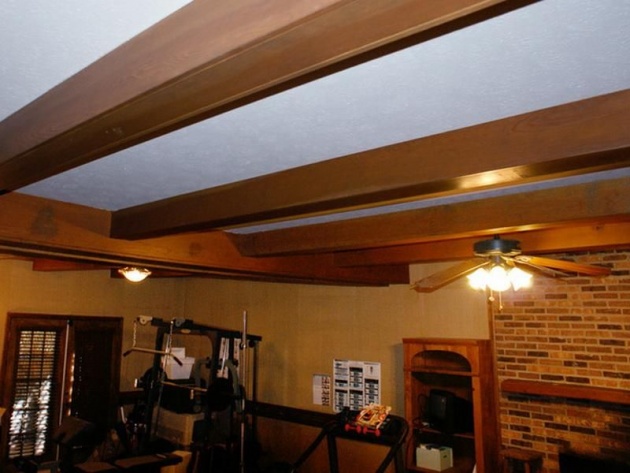
There are many ways to finish basement ceilings and you have to chose which type that suits you best. You can chose from traditional drywall, tongue and grove board, acoustic ceilings and drop ceilings. You can think about each option and find the best one that works for you.
If you decide on drywall, you have to be prepared to relocate pipes and ducts in between the joist. If all of it can't be hidden in the joist cavities, then you will have to box in what is showing. You will also have to add furring strips to put extra support where you need it. This is necessary to give strength to the boxes and provide a solid backing for the finished ceiling treatment. You will find that drywall is a good choice due to the fact that it is inexpensive but there is a lot of work involved before you get a finished product such as plastering and sanding.
If you prefer acoustic ceiling, the tiles are wonderful to work with due to their small size. You can install them by stapling them to the furring stripes but you do have to have all pipes and ducts hidden to get a smooth surface for your ceiling. You will find the same with using tongue and grove board, but once again you have to have a smooth surface and all pipes and ducts must be hidden. The cost of using this material is a bit higher, especially if you have to get someone to move pipes and ducts that can't be hidden easily.
A drop ceiling works really well on a basement ceiling if you have the height in the room. It is the easiest solution for your ceiling. This involves framing everything out, but it certainly will take care of the pipes that are hanging and cover them well with a smooth finish when you're done.
Finishing Basement Ceilings
Posted on at



